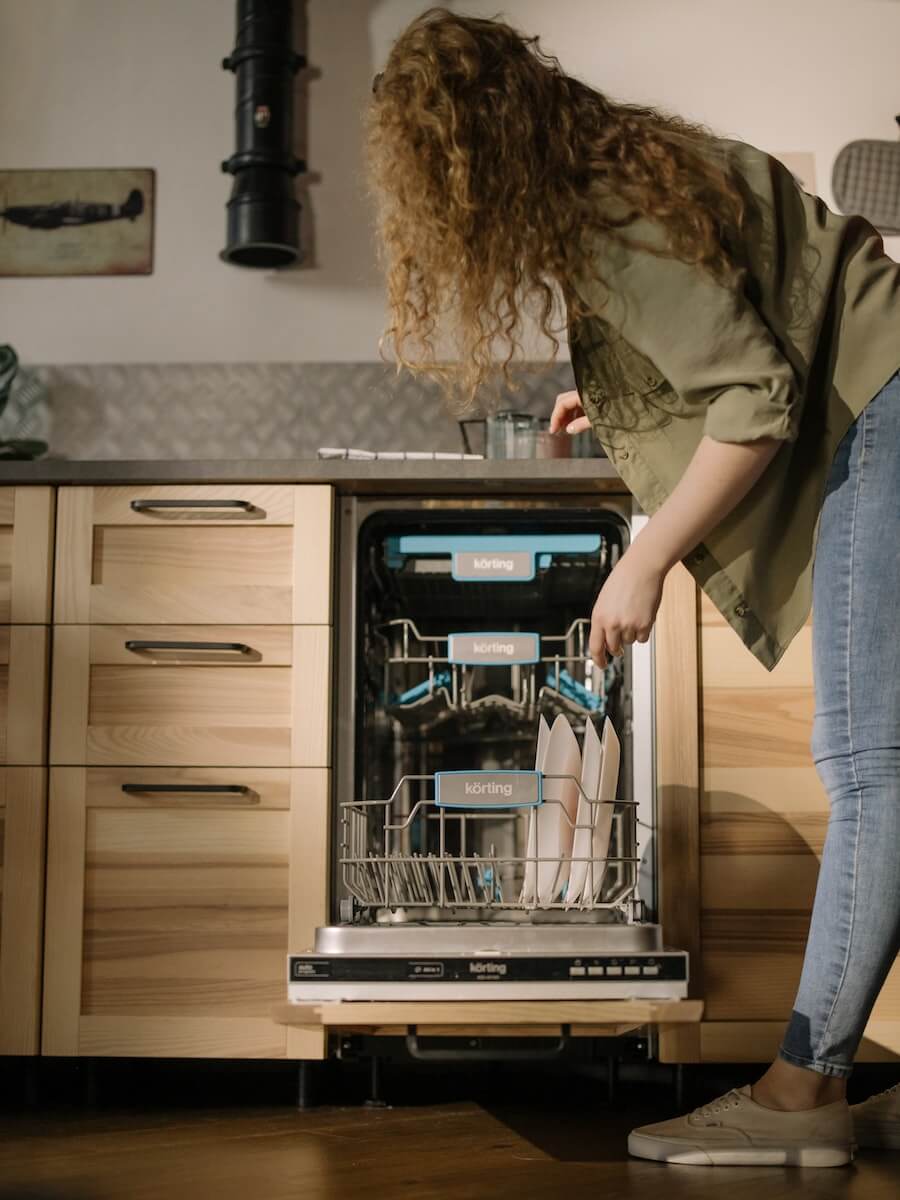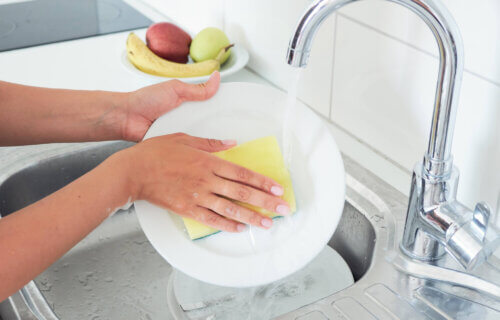LONDON — A new survey warns that pre-rinsing dishes before loading them into the dishwasher is not just a waste of time but also a costly practice. It turns out that this common habit is costing people in the United Kingdom an unnecessary $241 million in water each year.
According to the survey commissioned by energy experts Utilita, 62 percent of dishwasher owners admit to washing their items before putting them in the machine. This leads to a staggering 95 million liters of cold water being poured down the sink every single day, totaling 7.6 billion gallons annually.
“Knowing what our habits are costing us can encourage us to reconsider our behaviors, and in this case, the savings are significant, so should hopefully make households think twice,” says spokesperson Archie Lasseter in a statement.
Many who rinse their dishes believe they are preventing their dishwashers from clogging up. According to the survey, 59 percent justify their pre-rinsing because they think it prevents long-term machine issues. However, 53 percent of those who don’t pre-rinse counter this by arguing that dishwashers are designed to wash dishes thoroughly, making the step unnecessary.
Scroll down for the top 5 reasons people don’t rinse dishes

Notably, 42 percent of respondents only load their dishwasher when their dishes are “sparkling clean.” Yet, 39 percent of rinsers confess their dishes come out of the machine in the same condition they went in, raising questions about the need for pre-rinsing.
The habit also has a personal cost. People who rinse with hot water spend an average of $46.54 per year doing so, while those who use cold water spend about $13.70. Among those in the survey carried out by OnePoll, 31 percent run their dishwasher more than once a day, which would double these costs.
The survey also revealed that household debates over whether to rinse or not are common, affecting 27 percent of respondents. Additionally, 62 percent have never used their dishwasher’s “eco” mode, a setting that could save each household $42.02 per year, according to experts.
“Dishwashers are designed to provide a full dishwashing function, which includes rinsing, so we must put our trust in them to save time, money, and the environment,” says spokesperson Paul Hide.
Experts hope that these startling findings will encourage more people to skip the pre-rinse, trust their dishwashers more, and ultimately contribute to both saving money and protecting the environment.
Top 5 Reasons Why People Rinse Their Dishes:
- Concerned about clogging the dishwasher
- Want to keep the dishwasher clean
- To avoid breaking the machine
- It’s a force of habit
- To avoid the dishwasher smelling
Top 5 Reasons Why People Don’t Rinse:
- It’s a waste of water
- Pointless when the machine rinses them
- My dishwasher has a rinse on the cycle
- My dishwasher tablets advise not to rinse
- Can’t stand touching dirty plates
South West News Service writer Lucy Brimble contributed to this report.

Maybe dishwasher today have improved. But 20 years ago if I did not rinse the plate before I put it in, the plate would usually have food stuck to it after the dishwasher was finished. Especially if the food had dried before I put them in the dishwasher
I have read and followed this advice repeatedly and have concluded that it is wrong. If I don’t rinse, my (new model, top brand) dishwasher does indeed become grungy and disgusting, requiring me to take out various sieves and collect the gunk and rinse and scrub them with a toothbrush etc. etc. all using a lot of time AND WATER. Plus despite what the advertisements claim, even expensive dishwashers do NOT clean dishes that have not been rinsed and then you end up rewashing several of your items, by which point the food really is baked on and has to be washed away with lots of water. It is much better to rinse the dishes before putting them in the dishwasher, and I assert that so many people are doing this because they are right, not because they are ignorant and need educating.
I think that if your dishwasher is full and the dishes have just been used, brush off the big stuff and give it a go. We do a brief rinse because we don’t fill up the dishwasher for at least 2 days and things get dried on by then and get stuck on. Every once in a while I give it a challenge with a really grungy casserole. It always comes out sparkling. My DW is a high end 2 y/o.
The right or wrong in this answer depends on two things – the machine and the water temperature. I have owned five different washing machines in my life. I replaced two because they would not remove even the least bit of food and left crusty bits stuck to the dishes after drying. I examined the various machines closely. The machines that cleaned the dishes had a 1/3 horsepower motor. The failed machine has a much smaller motor. The smaller motor did not develop enough pressure to remove the stuck-on grime.
The other problem I discovered is the machine manufacturer recommends 140-degree water. Every water heater installer I have talked to stated new water heaters come set to 120 degrees to reduce the chance of scalding in the shower.
In short, if you have a small motor and low-temperature water, you must wash by hand, and the machine is simply a fancy drying rack